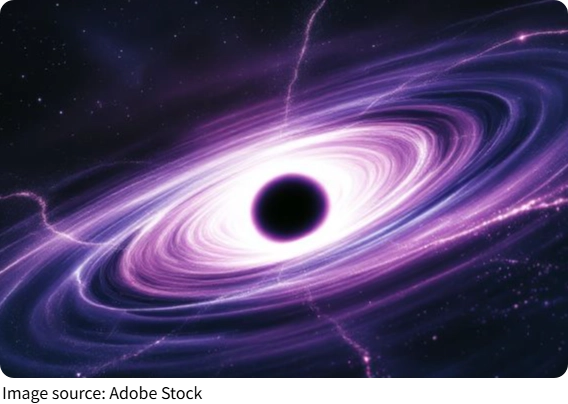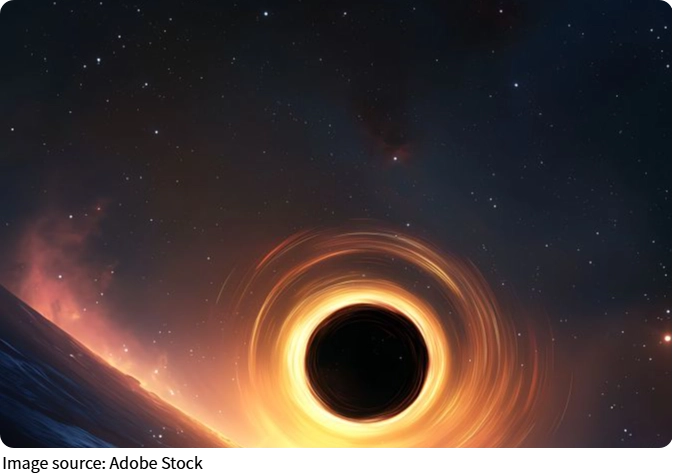Black Holes

Have you ever wondered about the mysterious giants in space known as black holes and the ripples in spacetime called gravitational waves? Recent breakthroughs in astrophysics are rapidly expanding our knowledge about these cosmic phenomena.
Today, we'll explore the latest discoveries concerning massive black hole mergers and how improvements in detecting gravitational waves are revolutionizing our understanding of the universe.
Record-Breaking Black Hole Merger Detected
In November 2023, the LIGO-Virgo-KAGRA collaboration observed the heaviest binary black hole merger yet, known as event GW231123. This unprecedented collision involved two black holes with about 100 and 140 times the mass of our Sun, merging to form a single black hole weighing over 240 solar masses. This discovery marks a milestone as it confirms the existence of intermediate-mass black holes, challenging prior models of stellar evolution that predicted much lower mass limits. Moreover, the black holes involved were spinning near the speed limits predicted by Einstein's theory of general relativity, hinting at a complex formation history possibly involving previous black hole mergers.
Advanced Analysis: Sharpening Our View of Black Hole Collisions
Parallel to detecting new events, scientists from universities such as Portsmouth, Southampton, and Dublin have developed enhanced methods to analyze gravitational wave signals more precisely. By improving how data from these ripples in spacetime are compared against theoretical models, researchers are creating clearer and more accurate pictures of black hole collisions. Though these refined techniques have not yet uncovered new black hole discoveries, they lay essential groundwork to unlock future insights about these extraordinary cosmic events.
Artificial Intelligence Unveils Black Hole Spin Mysteries
Artificial intelligence (AI) and massive simulation datasets have recently helped astronomers probe even the supermassive black hole at the center of our Milky Way. Using millions of synthetic data files, AI-driven Bayesian neural networks reveal that this black hole spins at nearly its theoretical maximum speed. These results challenge existing models regarding how black hole environments behave, including magnetic fields and emission sources, providing new perspectives on their nature and fueling the push toward comprehensive quantum gravity theories.
Technological Innovation Drives Discovery
Key to these advances is the continual upgrading of gravitational wave detectors like LIGO and Virgo, along with novel hardware developed by research teams, including significant contributions from the University of Birmingham. These improvements boost sensitivity, enabling the detection of more distant, massive mergers and increasing the precision of astrophysical measurements. Coordinated observations across multiple observatories enhance confidence in event data and allow scientists to test predictions of general relativity and black hole physics under extreme conditions.
Implications for Astronomy and Physics
The detection of intermediate-mass black holes and measurements of near-maximal spin rates introduce new challenges and opportunities in theoretical physics and astrophysics. They compel researchers to rethink models of black hole formation, such as the traditional view of black holes forming solely from dying stars. Instead, scenarios involving hierarchical mergers—where smaller black holes merge over time to form larger ones—gain traction. These findings not only deepen our cosmic understanding but also help guide the design of next-generation detectors that promise to unlock even more spectacular discoveries.

Looking Ahead: The Next Generation of Gravitational Wave Astronomy
With ongoing innovations and growing international collaborations, the future of black hole and gravitational wave research is bright. Planned upgrades and new facilities will extend detection ranges and sensitivity, potentially revealing phenomena currently beyond our reach. As technology and theory evolve hand in hand, humanity moves ever closer to answering profound questions about the fundamental nature of gravity, spacetime, and the universe's most extreme environments.
What Fascinates You About Black Holes and Gravitational Waves?
How do these cosmic discoveries shape your view of the universe? Do tales of massive black holes colliding or the subtle ripples in spacetime inspire your imagination? Share your thoughts and questions about black holes and gravitational waves—your curiosity helps fuel the excitement of exploring our cosmic frontier!
Thank you for joining this journey through the cutting edge of black hole and gravitational wave research. Stay tuned as humanity continues to uncover the secrets of the universe, one ripple at a time.
-
 Summer Style EssentialsWant to stay cool and stylish this summer? These must-have pieces help us look great without breaking a sweat!
Summer Style EssentialsWant to stay cool and stylish this summer? These must-have pieces help us look great without breaking a sweat! -
 The Future of MobilityWhy Gen Z May Never Buy a Car Again—The Shocking Shift in Mobility!
The Future of MobilityWhy Gen Z May Never Buy a Car Again—The Shocking Shift in Mobility! -
 Acne-friendly Concealer!Which One Covers Best? Find Out Which Acne-Safe Concealer Truly Works Wonders Today!
Acne-friendly Concealer!Which One Covers Best? Find Out Which Acne-Safe Concealer Truly Works Wonders Today!